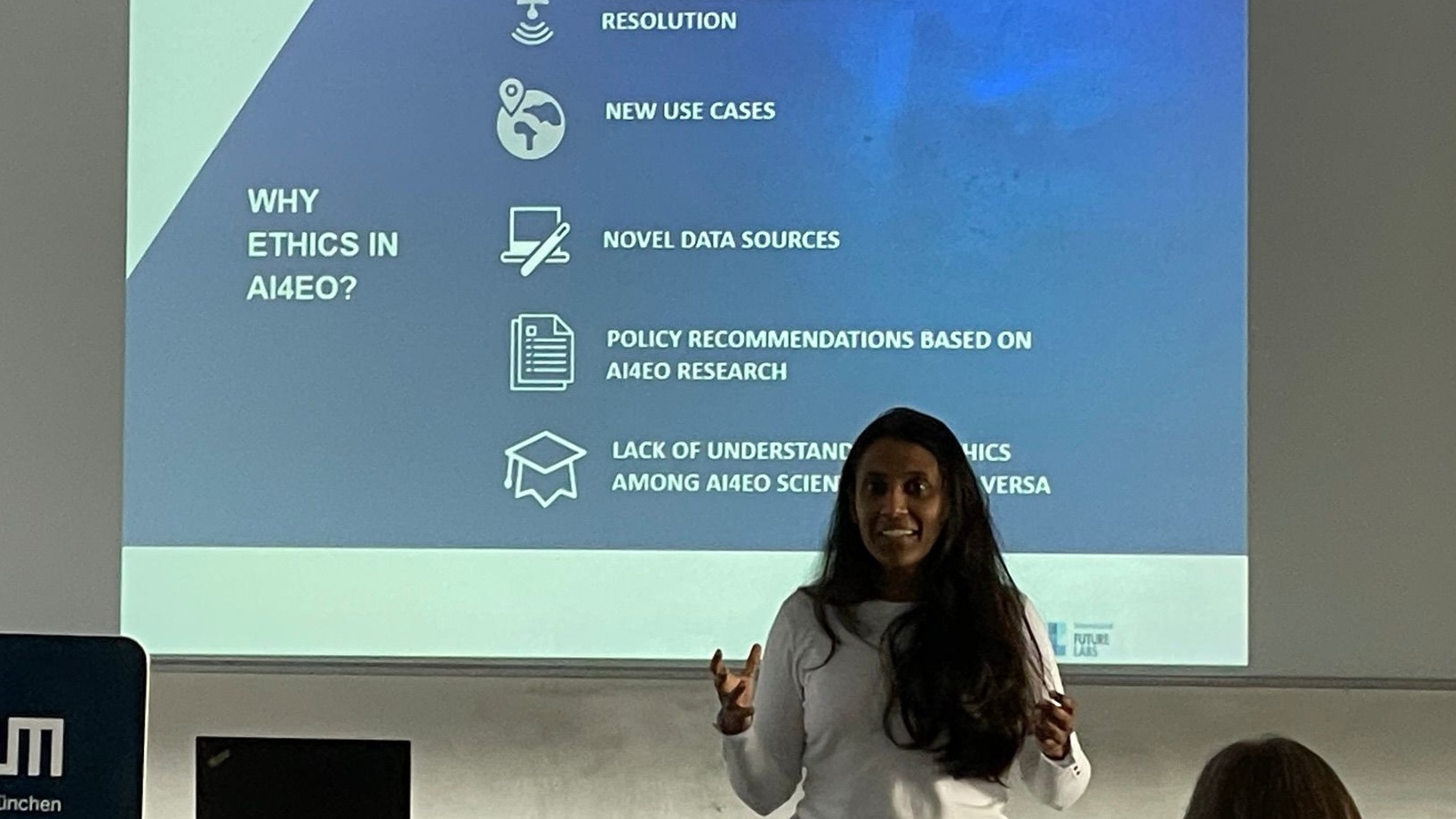The 27th of October 2022 marked the first TUM Sustainability day, which focused on demonstrating the steps taken toward the implementation of the sustainable strategy for the university. As a part of this, researchers from the Institute for Ethics of Artificial Intelligence presented their projects concerning this topic, such as smart cities and mobility, sustainable mining, and AI-enabled earth observation, in order to start a discussion on the role of technology in achieving sustainability goals.
Dr. Caterina Fontes held the first presentation on Smart Cities, which is a municipality that uses various kinds of technologies to collect specific data to create a sustainable environment. However, these systems were criticized for focusing primarily on economic goals rather than social and environmental ones. In response, smart city programs shifted towards creating a sustainable city and rebalancing economic, social, and environmental indicators of smart urbanism through efficient management and resource allocation. Dr. Fontes presented the Kirchheim Smart City program, which was successful in bridging gaps between UN and EU agendas with local communities, improved urban and data governance, increased overall understanding of Smart City projects, and through co-creation, established methodologies for public engagement.
Then, Prof. Dr. Mrinalini Kochupillai presented her study on the degree of general understanding of the Ethics in AI and Earth Observation. Her research found that ethical guidelines are, on average, not practically useful for academic researchers, specifically in the initial stages of research. Their proposed solution is to create a more practically useful method for identifying ethical issues and opportunities in the early stages of AI4EO Research. These ethical issues arose due to the increase in satellite image resolution, new use cases, novel data sources, and a lack of understanding of ethics among AI4EO scientists and vice versa.
Dr. Allister Loder and Prof. Dr. Christoph Ungemach introduced their research on “Tradeable Mobility Credits: Addressing Ethical Concerns with Algorithm Transparency.” TMCs work towards reducing carbon emissions from the transport sector by aligning transport choices with environmental objectives. They explained the ethical concerns surrounding this scheme, as it requires complex digital tools and the requirement of AI within the estimation of personalized parameters, as well as operation and enforcement. The central focus is understanding whether algorithmic transparency will support sustainable mobility behavior and user acceptance.
Finally, Dr. Caitlin Corrigan gave of overview of the new IEAI project that explores the “Potential for AI in the Extractive Industries to Promote Multi-objective Optimization.” This project delves into developing guidelines and models for the responsible use of AI-enabled technologies to improve the effectiveness and sustainability of supply chains for raw materials. This would work towards incorporating Multi-Objective Optimization, which locates the optimal solution for more than one desired goal within the development of resources and economies, as well as utilizing land management and geo-ethical dimensions of extractive industries to assess the top-down and bottom-up approaches in addition to the location and understanding of land conflicts in the context of extractive industries. This presentation concluded with the ethical considerations of using AI in this field, such as automation anxiety, data privacy, the balance of rewards, bias in outputs, and community acceptance.
This presentation ended with a discussion between the researchers and the attendees on the various research topics, such as models of energy efficiency in machine learning, the ethical and impactful applications of AI4EO in the developing world, and the degree to which the proposed ethical guidelines are efficient. The IEAI was proud to support the first TUM Sustainability Day and is committed to investigating the role of technology in promoting sustainability as a core issue going forward.

